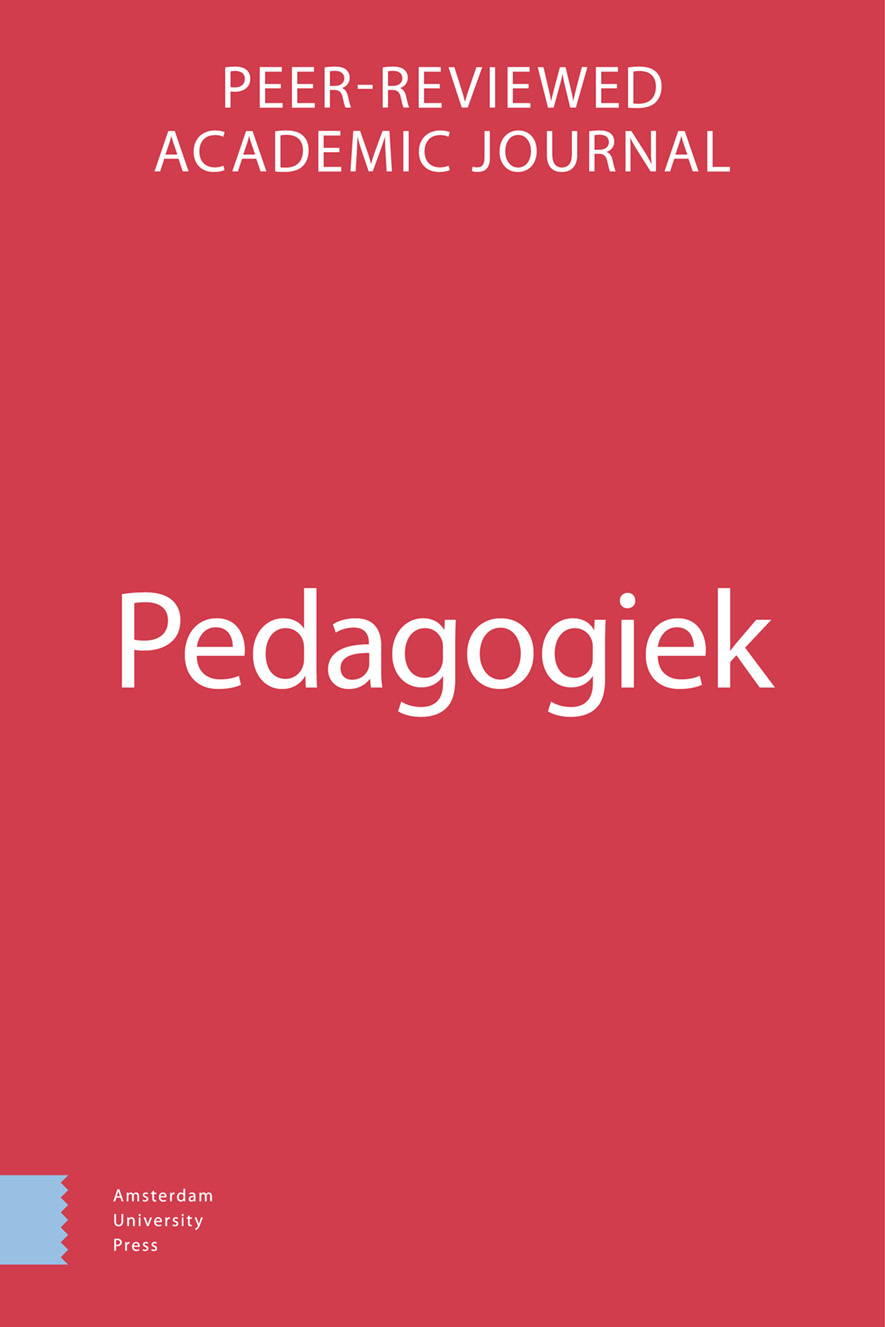-
oa Werk maken van moreel werk van leraren door reflectie en dialoog
Een exploratieve case studie naar de betekenis die leraren geven aan dagelijkse praktijk ervaringen met leerlingen
- Amsterdam University Press
- Source: Pedagogiek, Volume 40, Issue 1, Jul 2020, p. 45 - 72
-
- 01 Jul 2020
Abstract
Making work of the morality of teachers daily practice through reflection and dialogue
An exploratory case study to teachers’ meaning given to their daily practice experiences with pupils
This article reports a study into the reflection of teachers. The teachers participated in a professional learning community (PLC) to investigate their interactions with pupils in a dialogical process with colleagues. For this purpose a ‘critical reflexive dialogue’ was developed. First, we investigated how teachers give meaning to their experiences through three types of reflection – content, process and critical reflection – and or a shift in type of reflection takes place with the use of a critically reflexive dialogue. Second, we studied how the moral-political dimension occurred in teachers’ critical reflection. The research was conducted as an explorative case study in which the theoretical framework establishes a connection between moral educational practice with the types of reflection for teachers. Based on observations and field notes from eleven PLC meetings, results show when teachers make sense individually, they mainly pay attention to the content and the process of reflection. In this situation critical reflection is not self-evident. However, the results also show that teachers get more involved in critical reflection through critical dialogue and collective learning with colleagues in the PLC. Moral-political dimension included teachers’ critical reflection, but mainly focus on the meaning of their own beliefs for their daily practice and pupils and rarely on social and political influences. Based on these results, it is recommended that the moral-political dimension receives more explicit attention in teachers’ reflection.


